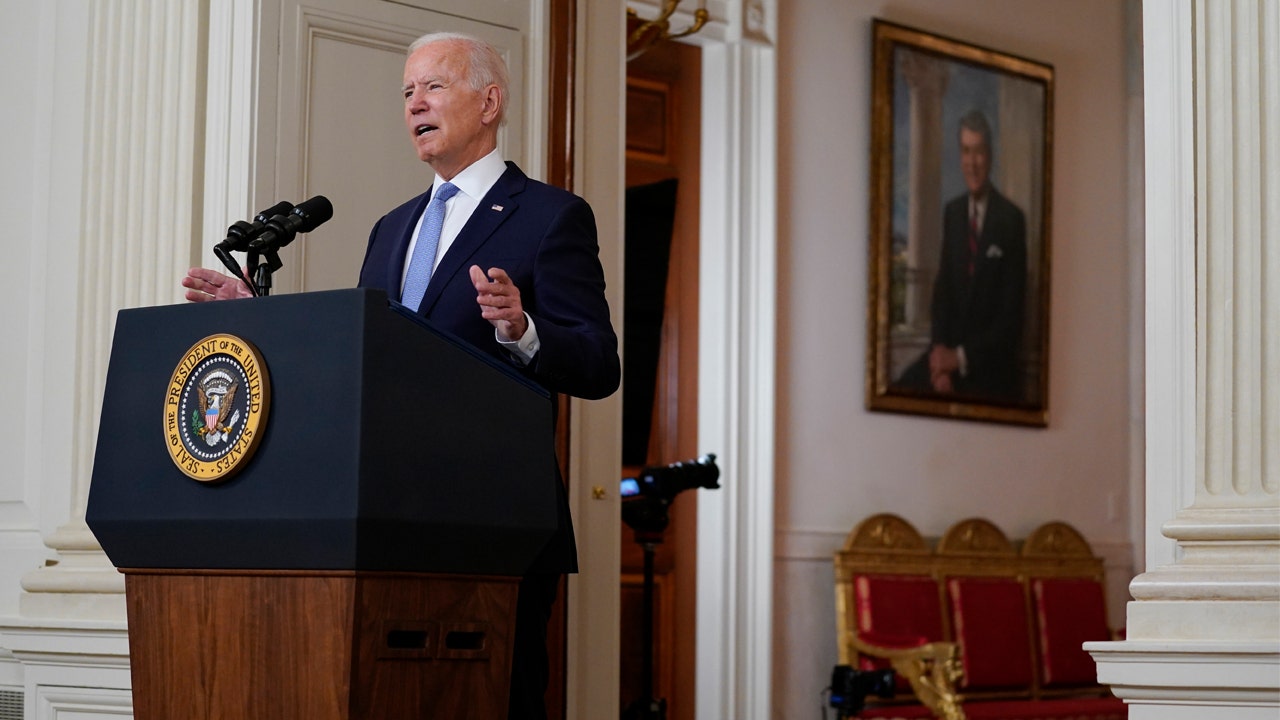
No one but a Democratic apologist would suggest the Biden presidency hasn’t taken a major hit from the Afghanistan debacle.
American military involvement in the war may have ended Tuesday, but haunting images of the chaotic evacuation, and devastating suicide bombing, are indelible.
And whether the number is 100, 200, or larger, the unthinkable reality is we did leave Americans behind, along with tens of thousands of Afghan allies.
The liberal editorial page of The Washington Post says flatly: "This is a moral disaster, one attributable not to the actions of military and diplomatic personnel in Kabul — who have been courageous and professional, in the face of deadly dangers — but to mistakes, strategic and tactical, by Mr. Biden and his administration."
One such American, an interpreter for the military, told CNN’s Chris Cuomo that she is terrified for herself and her children: "They left us to whom? To those people who are always wanting to kill us? ... If Americans could not help me when they were on the ground, how will they help me now when no one is here?"
WHO LOST AFGHANISTAN? WHY POLITICIANS AND PUNDITS MAY BE ASKING THE WRONG QUESTION
It’s nothing short of heartbreaking, and the repercussions of our failure in the 20-year war will be with us for a long time to come — perhaps even in the form of future terrorist attacks.
Fleeting attention span
But while this is a dominant and inescapable issue right now, the media, and the public, have a fleeting attention span.
How much press coverage will Afghanistan generate a month from now, or in three or six months? Will it slide onto a back burner as the press cooks up new storylines involving the pandemic, the economy, the trillion-dollar aid bills, and the inevitable political controversies and mini-scandals?
How much did we care, for instance, about Iraq once our forces finally left? In recent years, media coverage of Afghanistan shrunk to a minuscule level, and people weren’t exactly clamoring for more. Will news organizations continue to invest in keeping reporters in such an unsafe environment? More likely, Afghanistan will be treated like other failed terror states, such as Yemen, which blip onto the radar only when some atrocity occurs.
Television was obsessed with Hurricane Ida until it hit Louisiana, but the coverage is already starting to fade, even with a million people in New Orleans without power, and little prospect of getting it back for days or weeks.
President Biden, for his part, fiercely defended his decision Tuesday, praising "the extraordinary success of this mission" and lamenting the human toll of this war. He said "we reached out 19 times" to Americans stuck there, evacuating more than 5,500. "We remain committed to getting them out if they want to come out," he said, though the U.S. leverage for accomplishing that is unclear at best.
So Biden and his allies are hoping that memories will fade and a majority of voters will remember that he’s the guy who got us out of a war that the public believed was no longer worth fighting.
Of course, that may depend on whether the Taliban, who are claiming not to seek vengeance — I doubt it — cooperate with diplomatic efforts to evacuate more Americans and even Afghan allies. And the picture grows darker if a major terrorist attack is launched from its soil, as so tragically happened in 2001.
Eroding aura
But the political fallout has eroded something more fundamental to Joe Biden’s fortunes: his aura of competency. Even his allies concede that has been badly tarnished, especially with the Covid resurgence that is unfolding on the president’s watch.
Ross Douthat, in a New York Times column saying Biden’s critics lost Afghanistan, nonetheless admits that "the president himself has appeared exhausted, aged, overmatched — making basic promises about getting every American safely home and then seeing them overtaken by events."
But is this transitory? Post contributor Matt Bai insists that "Democrats and all the leftist Cassandras on cable TV really need to calm down, because history and common sense suggest that Afghanistan isn’t going to define the Biden presidency — and probably not even the next election."
SUBSCRIBE TO HOWIE'S MEDIA BUZZMETER PODCAST, A RIFF OF THE DAY'S HOTTEST STORIES
Bai makes the historical argument that many presidents get hammered by foreign policy setbacks early in their first term. John Kennedy had the embarrassing Bay of Pigs fiasco, the Cuban invasion plot hatched under Ike. Ronald Reagan was pummeled when more than 200 Marines he had sent to Lebanon were killed in a bombing — and soon withdrew them.
And Bill Clinton suffered when 18 American service members were killed in Somalia, though they had been sent there by George H.W. Bush. Both Reagan and Clinton, obviously, were reelected.
CLICK HERE TO GET THE FOX NEWS APP
I think Bai overstates the comparisons because none of those episodes involved a two-decade war rooted in a catastrophe such as 9/11, one that has cost the lives of 2,500 Americans. What’s more, the country was not as hyperpolarized as it is today. There was a sense of national mourning, led by Reagan, over the Beirut attack. These days, a handful of Republicans are calling for Biden to resign or be impeached (which, hypothetically, would be just seven months after the second Trump impeachment).
None of this mitigates Biden’s mismanagement of the Afghan evacuation, as the GOP will remind us in 2022. But the political world, and the media coverage, may look very different by then.
"lose" - Google News
September 01, 2021 at 02:00PM
https://ift.tt/3kGhvEP
Media and public could gradually lose interest in Biden's Afghanistan catastrophe - Fox News
"lose" - Google News
https://ift.tt/3fa3ADu https://ift.tt/2VWImBB
Bagikan Berita Ini














0 Response to "Media and public could gradually lose interest in Biden's Afghanistan catastrophe - Fox News"
Post a Comment